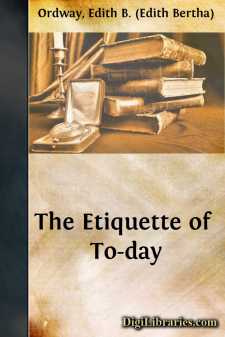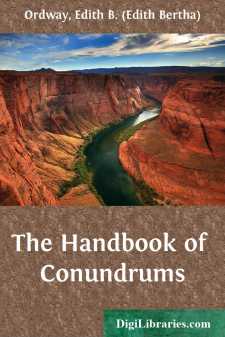Categories
- Antiques & Collectibles 13
- Architecture 36
- Art 48
- Bibles 22
- Biography & Autobiography 813
- Body, Mind & Spirit 142
- Business & Economics 28
- Children's Books 15
- Children's Fiction 12
- Computers 4
- Cooking 94
- Crafts & Hobbies 4
- Drama 346
- Education 46
- Family & Relationships 57
- Fiction 11829
- Games 19
- Gardening 17
- Health & Fitness 34
- History 1377
- House & Home 1
- Humor 147
- Juvenile Fiction 1873
- Juvenile Nonfiction 202
- Language Arts & Disciplines 88
- Law 16
- Literary Collections 686
- Literary Criticism 179
- Mathematics 13
- Medical 41
- Music 40
- Nature 179
- Non-Classifiable 1768
- Performing Arts 7
- Periodicals 1453
- Philosophy 64
- Photography 2
- Poetry 896
- Political Science 203
- Psychology 42
- Reference 154
- Religion 513
- Science 126
- Self-Help 84
- Social Science 81
- Sports & Recreation 34
- Study Aids 3
- Technology & Engineering 59
- Transportation 23
- Travel 463
- True Crime 29
Edith B. (Edith Bertha) Ordway
Edith Bertha Ordway was an American writer known for her contributions to reference books and anthologies, particularly in the early 20th century. She authored works such as "The Etiquette of To-day," a guide to social manners, and "The Handbook of Conundrums," a collection of riddles and puzzles. Ordway's books often focused on topics like etiquette, quotations, and humor, providing readers with accessible and practical knowledge. Her work reflects the cultural values and social norms of her time, making her a notable figure in the realm of instructional literature.
Author's Books:
Sort by:
THE REWARDS OF ETIQUETTE Society is a game which all men play. "Etiquette" is the name given the rules of the game. If you play it well, you win. If you play it ill, you lose. The prize is a certain sort of happiness without which no human being is ever quite satisfied. Because the demand for social happiness is thus fundamental in human nature, the game has to be played quite seriously. If...
more...
INTRODUCTION A conundrum is a riddle in the form of a question, the answer to which involves a pun. Originally the term was applied to any quaint expression. It is thus, in its modern form, a union of the elaborated riddle and the impromptu pun. With the earliest development of intelligence came the discovery of likeness and difference in things, and the search for analogy was carried out along both...
more...



